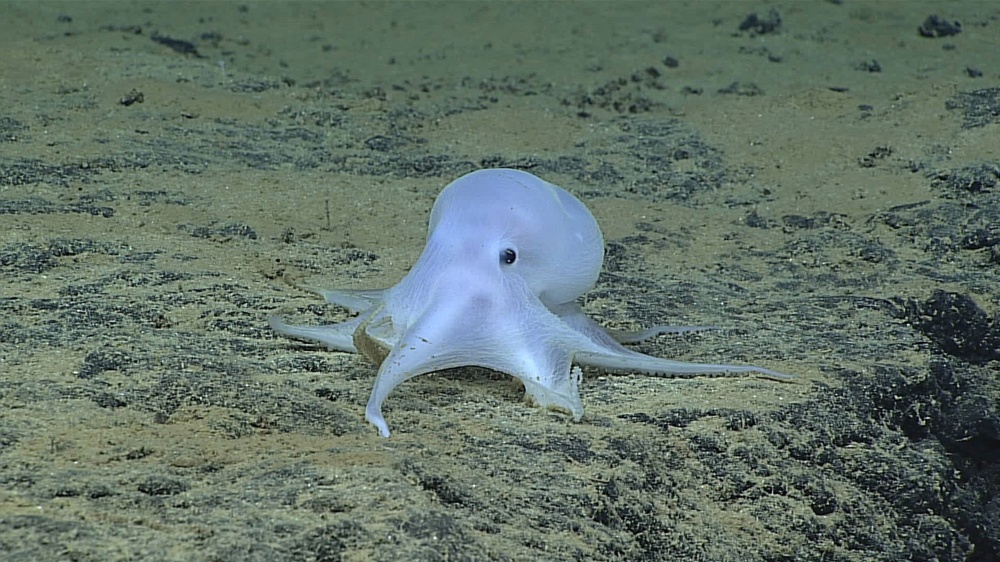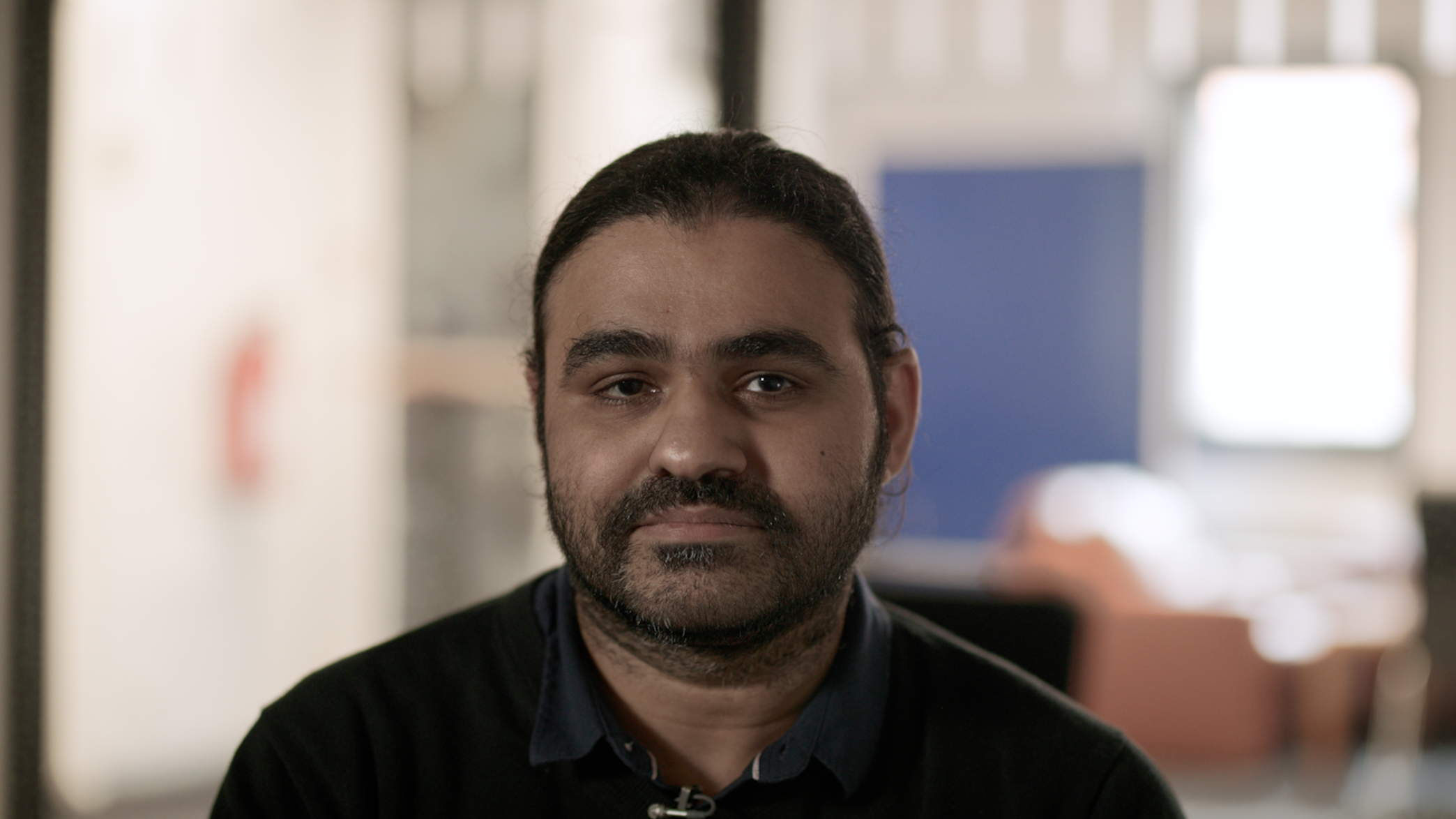
Deep-sea mining: a threat to wildlife, people and the planet
Deep-sea mining is the next great threat to our ocean. Mining companies plan to exploit the seabed for metals they say could be used for the transition to renewable energy. But, now, awareness is growing of the huge environmental destruction it would cause, the deep injustices it would worsen, and the simple fact that we do not need metals from the ocean deep.
To give a sense of how little we understand the deep ocean, more than 19,000 previously unknown seabed volcanoes were found in April. Yet, even while scientists are just starting to discover the deep, we are approaching a crucial deadline. This month, the first applications for commercial deep-sea mining could be approved by the International Seabed Authority (ISA), tasked with governing seabed mining.
With the wrecking impact of the mining machines themselves, and the vast, choking sediment plumes they would produce, deep-sea mining would wipe out ocean ecosystems that have taken millennia to form. The deep ocean is home to an extraordinary diversity of life, on par with tropical rainforests. Every scientific expedition turns up new and fascinating creatures.
This includes the scaly-foot snail, which has a shell partly made of metal; a species of ghostly octopus nicknamed ‘Casper’; the Greenland shark, some of which swimming today will have been alive 500 years ago during the reign of Henry VIII; and sponges more than 11,000 years old, the oldest living thing ever observed on Earth.
These environments are cold, stable, slow to change, and profoundly fragile. Disrupting them with mining will likely cause untold losses of wildlife, most of which has not even been documented by science, and degrade environments that might never recover.
The ISA is rushing to finalise regulations because of the so-called ‘two year rule’ – a procedure triggered in 2021 which set a two-year timer for the rules around deep-sea mining to be finalised. This countdown was started by the small island nation of Nauru, which has partnered with The Metals Company to allow the latter to mine the ocean.
However, any profits from deep-sea mining will almost certainly flow to a handful of companies and individuals, largely based in the Global North.
For example, one recently approved contract, sponsored by Jamaica, is held by Jamaican-registered corporation Blue Minerals Jamaica Ltd. However, this company is actually a subsidiary of a holding company connected to the Swiss Allseas Group and directed by the same board.
Meanwhile, developing nations and ocean-dependent communities will be saddled with the costs. This isn’t just a prediction. We know it from the recent past. In 2019, the first attempt at deep-sea mining failed, but not before it cost the small nation of Papua New Guinea more than a hundred million US dollars.
A wave of opposition
Opposition to deep-sea mining extends far beyond environmental groups. Big business isn’t backing it either.
Brands including Google, BMW, Samsung, Volvo, Philips, Volkswagen and more have all signed a statement clarifying their opposition to deep-sea mining and the seismic environmental impacts it could have.
On a recent webinar, Claudia Becker of BMW confirmed that the car company is “committed to not using minerals from the deep-sea until comprehensive, scientific investigations into the effects can be carried out and the consequences for the environment have been clearly assessed”.
Germany’s Environment Minister, Steffi Lemke, reiterated this attitude, saying that “in my view, from the perspective of the German Federal Government, the only reasonable consequence is to refrain from mining raw materials in the deep-sea as long as serious damage… to the environment cannot be ruled out”.
Germany is not alone – a growing number of states have spoken out in opposition to deep-sea mining. Several nations including Palau, Fiji, and the Federated States of Micronesia are calling for a full moratorium, and French President Emmanuel Macron has expressed his opposition, calling for a ban on deep-sea mining in international waters.
Deep-sea mining has also been opposed by indigenous leaders, who have highlighted the fundamental incompatibility of deep-sea mining with their culture and heritage.
Solomon Pili Kahoʻohalahala, a seventh-generation Indigenous native Hawaiian descendant from the island of Lānaʻi, told us that “if mining companies start using the ocean floor for profit, they do so knowing that they are decimating sacred and cultural connections”.
Sinking investments
Increasingly, actual and possible financial backers of deep-sea mining are also deciding it isn’t worth the risk.
The technology is unproven, requires extensive capital and operational expenditure, and the timescales for the industry to become active may not align with demand for its outputs.
In fact, the market share of batteries which require neither cobalt nor nickel – key targets of deep-sea miners – rose to 31% in September 2022 from 17% in January 2021, nearly doubling in under two years.
In March this year, the biggest corporate investor, US aerospace, arms and defence company Lockheed Martin, exited the industry, followed swiftly by shipping giant Maersk.
Investing in deep-sea mining is in direct opposition to sustainable investment. It may also run up against future requirements to disclose the biodiversity impacts of investment, which is already mandatory in France.
In short, deep-sea mining will mean vast destruction we can’t predict, to produce minerals we don’t need. It would disturb our planet’s largest carbon sink, and harm countless species we haven’t even encountered yet. In our newly-launched ‘manifesto for our ocean’, we call on everyone to join us, and the growing global wave of opposition, in rejecting it.
Image courtesy of the NOAA Office of Ocean Exploration and Research, Hohonu Moana 2016.
This piece was originally published by Byline Times and is shared here with permission.
SIGN UP FOR OUR EMAILS AND STAY UP TO DATE WITH EJF

